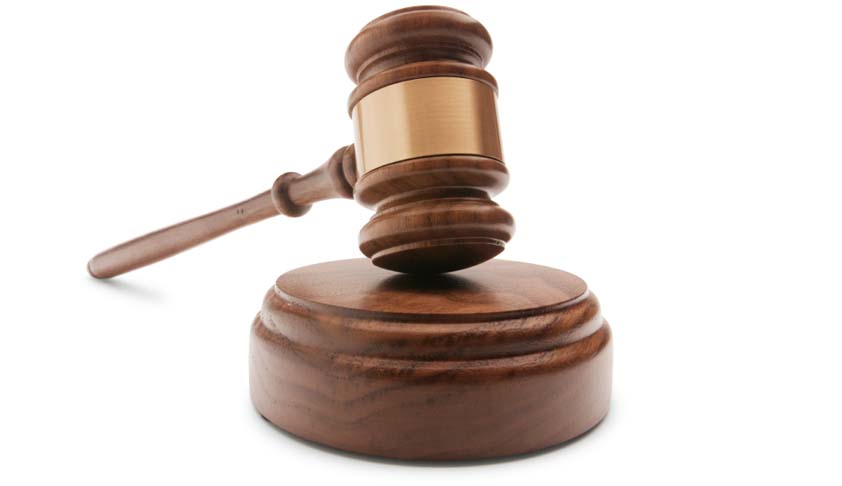The Role Of The Unconscious And Irrational In Law: A Psycho-Social Gaze
Rakesh Shukla
16 March 2017 12:45 PM IST

Many of us as lawyers or litigants may at times have witnessed or been a party to an irritable exchange between the judge and a lawyer in the court. All of us are human and irritation, anger, frustration and perceived provocations impact rational and balanced thought.
However, often the judge may be heard to observe that he never lets exchanges with counsel impact the merits of the case and the interests of the clients involved. This could be due to the image of a judge as a person unaffected by emotions in the discharge of judicial functions. This self-image may make the thought “as a judge I get affected by angry exchanges” intolerable, and the thought gets suppressed and denied at a conscious level. However, the suppression is a bit like sweeping the dirt under the carpet. The suppressed emotions impact the functioning of the mind and the discharge of judicial duties. Almost everyone else can sense ‘Judge saheb naraz ho gaye hain’ (the judge has become angry)
A parallel – and more meaningful – paradigm could be to acknowledge the feelings engendered by the angry exchange and take them on board at the conscious level. Feelings which are suppressed are not amenable to processing and yet continue to impact human actions. Once feelings are in the conscious domain they can be processed by one’s mind. A judge after acknowledging the feelings of irritability may take a sip of water and can think “Maybe it is better not to pass a final order today” or “Maybe I should adjourn this case today” or “Maybe I should recuse myself from this case”. It opens the possibility of conscious choice to reduce the impact of the angry-irritable feeling engendered by the exchange.
Biases, prejudices and stereotypes
The scenario depicted above is a small everyday illustration of the role of the unconscious in the functioning of law. A major area in which the role of the unconscious can be seen is in the playing out of the biases, prejudices and stereotypes of the judge. It is rare that a judge would consciously think – “I am against workers” or “I think Muslims are bad” or “homosexuals are abnormal”, yet these notions impact judicial behaviour and functioning. Usually, the roots of these biases, prejudices and stereotypes lie in the unconscious.
All of us imbibe by an osmosis-like process the likes-dislikes, biases-prejudices and stereotypes of the caste, community, religion, gender and class in which we are raised. It is of course desirable for all individuals to minimize the role of biases, prejudices and stereotypes in their actions. However, as a crucial facet of impartiality, a special responsibility rests on individuals placed in judicial positions to try and reduce the impact of personal biases, prejudices and stereotypes. Gender, caste, class, nationalism, sexual orientation are some of the likely areas of play of these notions. However, legal systems all over the world do not take cognizance of the role of the impact of unconscious biases, prejudices and stereotypes on law and practice.
Judicial Recognition
A rare instance of judicial recognition of this issue is reflected in a judgement of the Supreme Court in Suchita Srivastava versus Chandigarh Administration, 2009 (11) SCALE 813. The Punjab & Haryana High Court had ordered the termination of the pregnancy of an adult young woman who had not given her consent for abortion. The High Court had ordered the termination without her consent as the woman had been categorized as ‘mentally retarded’. Reversing the order of the High Court, the Hon’ble Chief Justice of India observed: “...this case also presents an opportunity to confront some social stereotypes and prejudices that operate to the detriment of mentally retarded persons. Without reference to the present proceedings, we must admit that even medical experts and judges are unconsciously susceptible to these prejudices.” The CJI went on to perceptively observe: “It would also be proper to emphasize that persons who are found to be in a condition of borderline, mild or moderate mental retardation are capable of being good parents.”
Legal Maxims in play
The fundamental legal maxims of criminal jurisprudence like ‘presumption of innocence’, ‘burden of proof on prosecution’, ‘evaluation of evidence’ and ‘proving beyond reasonable doubt’ are irreproachable. In practice these high principles of law are played out in hundreds of court rooms mediated through the agency of a judge, an individual as much prey to the foibles, idiosyncrasies, pride, prejudices and egotism as any human being.
A person accused of theft and appearing to the judge like the very stereotype of a drug addict may evoke a gut feeling that –‘ smackiya hai – isi ne chori kee hogi’ ( the guy is an addict; he must have committed the theft.’) Judicial training does not have any component of taking this gut feeling on board and processing it. In practice the ‘gut feeling’ impacts in a vital manner the presumption of evidence, the evaluation of evidence and the determination of innocence or guilt.
Judicial Verdicts
The overwhelming role of subjective notions of the individual judge can be more clearly seen in instances where the trial court has awarded capital punishment and the appellate court has acquitted the accused persons. Former Prime Minister Rajiv Gandhi, was assassinated on May 21, 1991 in Sriperumbudur, Tamil Nadu. The trial court convicted and awarded the death penalty to all the 26 accused persons. The Supreme Court acquitted 19 of the 26 persons. The conviction and award of death penalty and the acquittal of 19 persons out of 26 on the same evidence brings home the crucial role of the attitudes, opinions and perceptions of the individual judge impacting liberty, and the very life of the accused.
Way forward
The justice delivery machinery rests on the assumption of judicial impartiality. In practice, the system works in a capricious and sometimes iniquitous manner right from the investigation of the offence to the prosecution and finally the judgment. Similarly, sanctified notions of criminal jurisprudence such as ‘presumption of innocence’; ‘burden of proof on prosecution’; ‘evaluation of evidence’ and ‘proving beyond reasonable doubt’ for conviction, are put into practice often in an inconsistent and arbitrary manner. Minimizing the impact of subjective factors at play in the psyche, interventions in the training of the investigative arms of the police; the prosecutor and judicial officers could contribute towards ensuring a more equitable justice delivery system.
 Rakesh Shukla is an Advocate practising in the Supreme Court of India and Consultant, International Psychoanalytical Association Committee of Psychoanalysis and Law.
Rakesh Shukla is an Advocate practising in the Supreme Court of India and Consultant, International Psychoanalytical Association Committee of Psychoanalysis and Law.
[The opinions expressed in this article are the personal opinions of the author. The facts and opinions appearing in the article do not reflect the views of LiveLaw and LiveLaw does not assume any responsibility or liability for the same]


